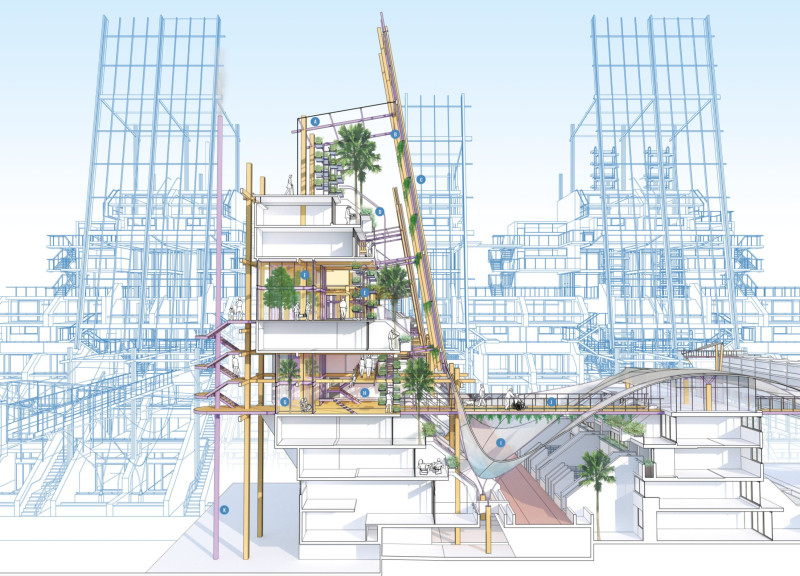5 key facts about this project
Key to this architectural design is the creation of interconnected spaces that facilitate social interaction while ensuring accessibility across different building levels. The design incorporates both upper and lower communal courtyards that provide distinct atmospheres for socialization and relaxation. This duality is crucial for fostering a sense of community among residents of varying demographics.
In terms of materiality, the project employs a thoughtful selection of materials that ensure durability and aesthetic appeal. Steel, wood, glass, and concrete play significant roles in the structural and visual components of the design. The use of steel provides a strong framework, while wood adds warmth, and glass enhances transparency and light penetration. Concrete is strategically chosen for its durability, specifically in the foundation and areas requiring robust support.
Unique to the Costa del Alexandra 2050 project is its focus on verticality and nature integration. The design features vertical pathways that promote movement throughout the space, while hydroponic gardens are interwoven into the architecture, providing residents with opportunities for sustainable food production. This distinguishes the project from standard urban residential designs, addressing both ecological concerns and community needs.
The project further innovates through its sustainable features including rainwater harvesting systems and solar power integration. This not only reduces the environmental impact but also educates residents on sustainability practices, making these concepts tangible and applicable in daily life.
The Costa del Alexandra 2050 project exemplifies a modern approach to urban architecture, balancing community needs with ecological consciousness. To gain a deeper understanding of its functionality and design, readers are encouraged to explore the project presentation, which includes architectural plans, architectural sections, and a comprehensive overview of the architectural ideas that underpin this initiative.


























